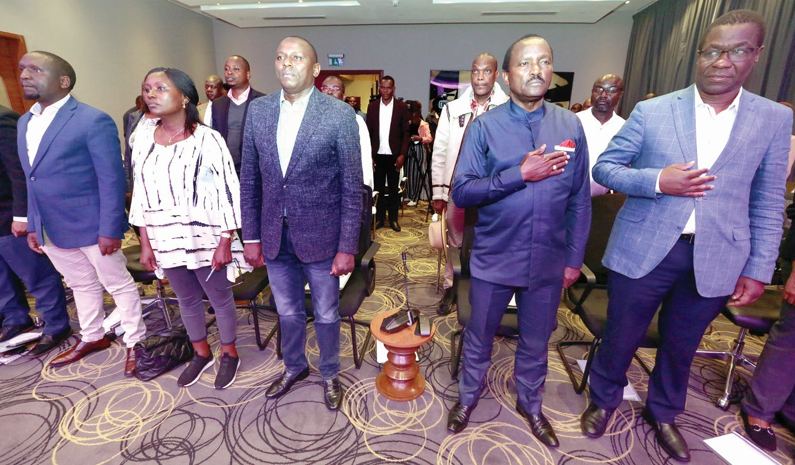NADCO report should inform electoral body reforms

In the debate on how the Independent Electoral and Boundaries Commission (IEBC) should be reconstituted, public opinion is as diverse as it should be in a functional democracy.
Part of the realities informing controversies around reconstitution of IEBC arise from the fact democracies are no longer merely defined in terms of periodic elections. The demand for greater accountability that ensures that every vote counts is at the centre of the debate.
Article 38 (2) of the Constitution provides for the right to free, fair and regular elections based on universal suffrage and the free expression of the will of the electors. These rights are not just aspirational but achievable for all Kenyans.
However, ever since Kenyans first went to the polls under the new laws in 2013, their aspirations for free, fair, credible and accountable elections have been unvaryingly undermined by weak, unprofessional and incompetent election management body.
But being a dynamic and pragmatic people, Kenyans are acutely aware that even as they gave unto themselves a new constitution with high-sounding democratic ideals, their quest for an enduring model of electoral democracy that guarantees free, fair and credible elections would require constant re-evaluation.
The determination to create a more democratic society is fortified by a number of paradigms.
In the old constitution, there was proclamation of Kenya as a “sovereign republic”. However, there was no clarity as to where the sovereignty was vested.
But with the new constitution, the distortion is addressed. All sovereign power belongs to the people of Kenya and can only be exercised in accordance with the Constitution. It begins right from the preamble that recognizes “aspirations of all Kenyans for a government based on the essential values of human rights, equality, freedom, democracy, social justice and the rule of law”.
And with the new republic premised on a multi-party democratic State founded on patriotism, sharing and devolution of power, the rule of law, democracy and participation of the people as the national values and principles of governance, those in positions of authority are increasingly coming to the realization that they can no longer manipulate (kupanga) citizens as they would have done before.
Kenyans politicians have no option but to come to terms with the reality that with such constitutional edicts, a vibrant and active citizenry, and the increasingly bold Judiciary, Kenyans are not prepared to lose an inch of their hard-won liberties.
Besides, the unbearable cost of living following the 2022 elections, more Kenyans are becoming intensely aware that their social and economic progress as individuals and a collective is determined by institutions established after elections.
Furthermore, Kenyans are now aware that freedoms of association, assembly and expression through which they exercise their rights to form and join organizations, including political parties and civil society groups, assemble to protest against and advocate for policies they want, can be arbitrarily taken away as they witnessed in 2023.
These freedoms collectively constitute ‘civic space’ and are an essential part of a vibrant democracy where debates and discussions thrive, and where people are able to contribute to important decisions that affect their day-to-day lives.
It is within this context that institutions like the IEBC, Registrar of Political Parties and individuals appointed to manage them will continue to attract public attention and institutional significance.
As Parliament reconvenes after along recess, Kenyans expect it to prioritize recommendations of the bipartisan National Dialogue Committee (NADCO) on all reforms necessary to reconstitute IEBC.
It must also put in place measures that will ensure that those picked to serve in the election management body as commissioners are individuals of neutral, stellar and remarkable credentials capable of restoring and building public trust and confidence in the electoral process.
The new team should ensure only managers in the commission’s secretariat with untainted track record are retained.
—The writer is the Executive Director of the Kenya National Civil Society Centre
— suba_churchill@yahoo.com












